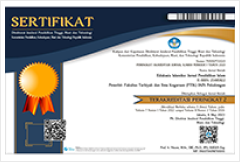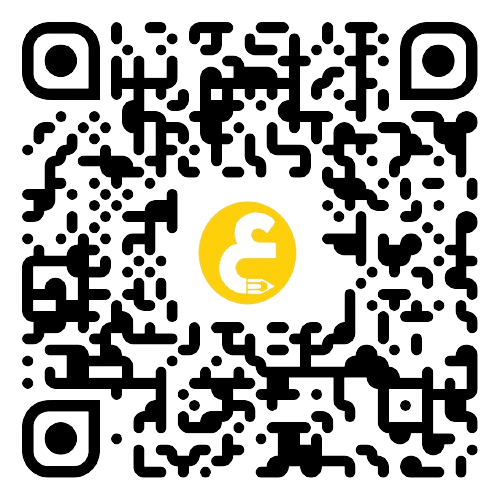The System of Educational Quality Management at MIN 2 Sleman Yogyakarta
DOI:
https://doi.org/10.28918/jei.v4i2.2300Keywords:
Quality Management, Educational Quality Assurance, Public MadrasaAbstract
This article will talk about the system of educational quality management implemented at MIN 2 Sleman, Yogyakarta. This issue plays an important role in improving education, especially madrasa. Infact, according to Damayanti (2005:34), our educational level is still low and it really needs improvement as the foundation for an effective partnership among educational institutions. Furthermore, the sense of solidarity and brotherhood seem to decrease as the results of the low character building. In this case, religious institutes seem to have bigger responsibility to solve this problem. The good quality of education in religious institutes (madrassa) will, in turn, produce a generation that is expected to be able to portray himself as the leader of the people, communities and nations. The implementation stages of education quality management at MIN 2 Sleman starts from planning, organizing, mobilizing, supervising, developing and evaluating. The implementation of this phase uses bottom-up, transparent, and accountable system, accompanied by a clear job description in each position so that it can provide optimal education services. The objects of the quality assurance include character building, education, internal audit, teaching learning, and quality development of the teacher and academic staffs. In accordance to the quality assurance, MIN 2 Sleman has implemented Children-Friendly School (CFS) which aims to sett a comfortable shcool for the children, ensure the fulfilment of the right and protection of the children after their own home
References
Bieker, R. F. (2014). Does AACSB accreditation provide quality assurance and foster quality improvement for limited resource business schools whose missions are primarily teaching? The International Journal of Management Education, 12, 283-292.
Damayanti, R. W. (2005). Analisis Faktor-faktor Pendukung Implementasi ‘Six Sigma’. Tesis, Institut Teknologi Bandung.
Furchan, A. (2004). Transformasi Pendidikan Islam di Indonesia. Yogyakarta: Gema Media.
Holm, T., Sammalisto, K., & Vuorisalo, T. (2015). Education for sustainable development and quality assurance in universities in China and the Nordic countries: a comparative study. Journal of Cleaner Production, 107, 529-537. https://doi.org/10.1016/j.jclepro.2014.01.074
Irianto D. (2004). Total Quality Management Aspect of Implementation and Performance. Doctoral Thesis, Lulea University of Technology.
Komariah, A. & Kurniady, D. A. (2017). Authentic Leadership: Strategy of the Implementation of Madrasah Management of Change. Jurnal Pendidikan Islam, 6(2), 293-310. 10.14421/jpi.2017.62.293-310
Larina, L. N. (2015). Practical Application of Total Quality Management System to Education of International Students. Procedia - Social and Behavioral Sciences, 215, 9-13. https://doi.org/10.1016/j.sbspro.2015.11.566
Liu, J. (2018). Constructing resource sharing collaboration for quality public education in urban China: Case study of school alliance in Beijing. International Journal of Educational Development, 59, 9-18. https://doi.org/10.1016/j.ijedudev.2017.09.004
Maroun, W. (2019). Does external assurance contribute to higher quality integrated reports? Journal of Accounting and Public Policy, 38(4), 1-23. https://doi.org/10.1016/j.jaccpubpol.2019.06.002
Marshall, K. (2018). Global education challenges: Exploring religious dimensions. International Journal of Educational Development, 62, 184-191. https://doi.org/10.1016/j.ijedudev.2018.04.005
Micić, Z., Micić, M., & Blagojević, M. (2013). ICT innovations at the platform of standardisation for knowledge quality in PDCA. Computer Standards & Interfaces, 36(1), 231-243.
Moerdiyanto. (2006). Strategi Pelaksanaan Sistem Penjaminan Mutu Pendidikan (SPPMP) oleh Pemerintah Kabupaten Kota. Yogyakarta: UNY Press.
Praraksa, P., Sroinam, S., Inthusamith, M., & Pawarinyanon, M. (2015). A Model of Factors Influencing Internal Quality Assurance Operational Effectiveness of the Small Sized Primary Schools in Northeast Thailand. Procedia - Social and Behavioral Sciences, 197, 1586 – 1590. https://doi.org/10.1016/j.sbspro.2015.07.115
Sallis, E. (2006). Total Quality Management in Education. London: Kogan Page.
Sfakianaki, E. (2019). A measurement instrument for implementing total quality management in Greek primary and secondary education. International Journal of Educational Management, 33(5). https://doi.org/10.1108/IJEM-08-2018-0245
Shirley, M. H., Tobia, E. F., & Leithwood, K. (2012). Reclaiming Our Teaching Profession: The Power of Educators Learning in Community. 21st Century Leadership: Looking Forward, 4(1), 1–22.
Sudarwan, D. (2015). Profesi Pendidikan. Jakarta: Alfabeta.
Sukasni, A. & Efendy, H. (2017). The Problematic of Education System in Indonesia and Reform Agenda. International Journal of Education, 9(3), 183-199. https://doi.org/10.5296/ije.v9i3.11705
Sukmadinata, N. S. (2009). Pengembangan Kurikulum Teori dan Praktik. Jakarta: PT. Rosdakarya.
Government Regulation No. 19/2005 on the National Standard of Education






















